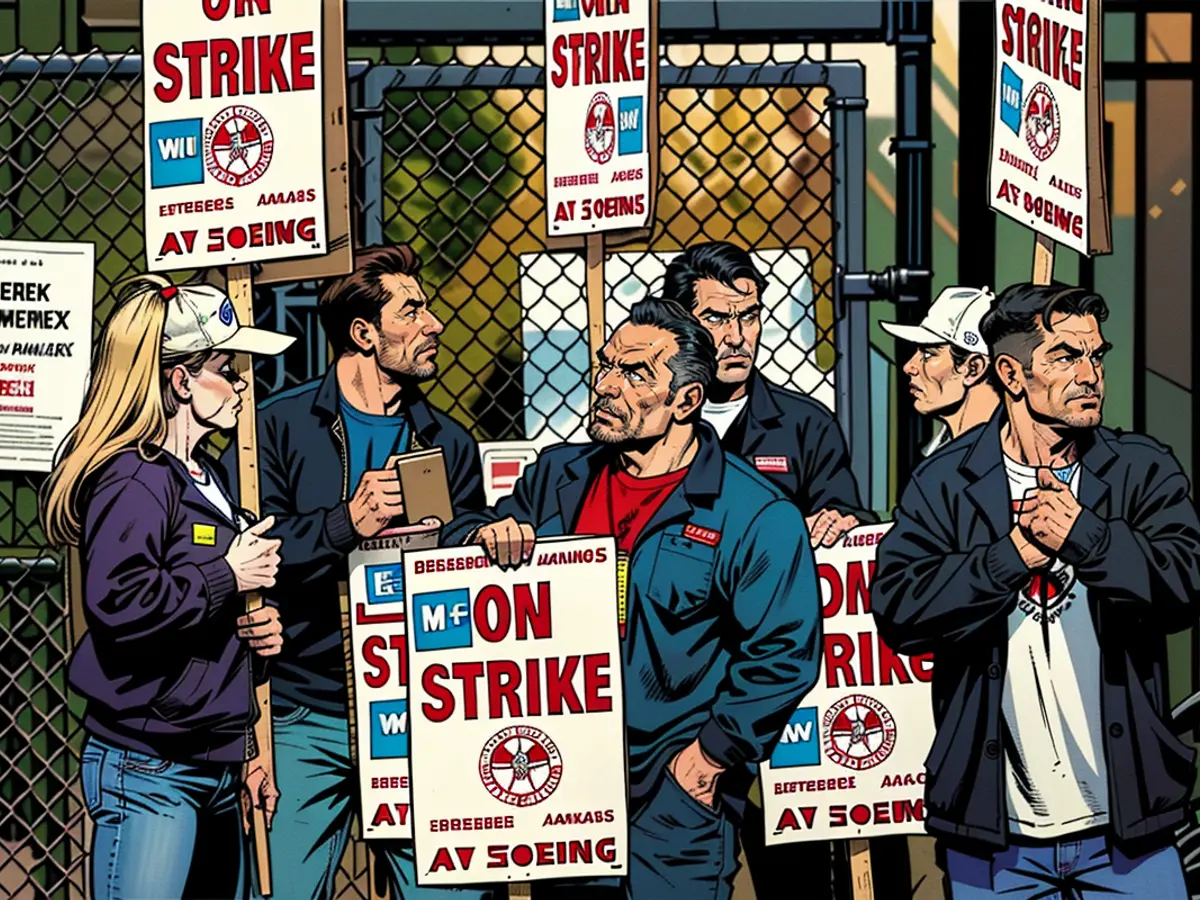The financial toll of the Boeing strike currently stands at an estimated $5 billion, according to recent data analysis.
Boeing's staggering financial setback underscores the troubles confronting the airplane manufacturer, once synonymous with American excellence. Instead, it's been beset by a string of adverse events recently, including lethal crashes, intensified regulatory monitoring, and a strike involving 33,000 workers that began on September 13, almost crippling operations.
Boeing's labor force and shareholders bear the brunt of the strike's losses, totalling $3.7 billion as per the latest analysis. Not a single airplane has been produced at Boeing's Washington facility in Everett since the IAM members went on strike, initiating Boeing's first strike in 16 years.
"Suppliers, Seattle-area businesses, and Boeing clients are bearing some of the cost," remarked Patrick Anderson, CEO of Anderson Economic Group. "Our estimates now include substantial losses to other Seattle businesses, in addition to losses to clients dependent on Boeing's services and parts."
Boeing's suppliers incurred losses of $900 million within the initial four weeks, while non-Boeing Seattle workers affected by the strike incurred losses of $102 million. Boeing's clients, namely airlines, also endure financial losses, amounting to $285 million globally.
"Boeing's funds and those of its shareholders are dwindling as the company expends its cash reserves and may be forced to borrow or issue shares to sustain its operations during the strike and potential challenging recovery phase," said Anderson.
Friday saw Boeing declare plans to lay off 10% of its workforce, approximately 17,000 employees.
"Our situation is challenging, and the hurdles we face are substantial," Kelly Ortberg, Boeing's CEO, said in an email to employees on Friday.
Before Ortberg's appointment as CEO in August, Boeing was found guilty of deceiving the FAA—after failing to disclose a 737 Max fleet upgrade that resulted in a design flaw, leading to two 737 Max crashes, one each in 2018 and 2019. The resulting plea bargain with the Department of Justice incurred fines of nearly $1 billion for the company. The judge is currently reviewing the plea bargain.
Discussions between Boeing and the striking IAM workers ended last week following two days of federally mediated negotiations. "Unfortunately, the union did not seriously consider our offers," Stephanie Pope, CEO of Boeing's commercial aircraft division, stated in a Monday evening memo to employees. Pope declared the union's demands "non-negotiable."
Despite the wide gap between both sides on almost every issue, John Holden, IAM District 751 president, told CNN on Thursday that "a deal can be reached."
"I'm unsure what the outcome will be, but there are numerous aspects on the table. Negotiations must take place and an agreement must be reached in order to resolve the situation," Holden told CNN.
Holden is confident in the strength of the strike fund—money distributed to members each week they are on strike—to sustain members as long as necessary to reach a "reasonable" agreement. However, he understands the economic impact.
"It'll impact the GDP this year. It'll impact the aerospace supply chain and production moving forward. The longer this lasts, the more challenging it becomes to restart production and get back to full speed," he said.
The ongoing strike at Boeing is causing significant financial losses not only for the company and its shareholders but also for its suppliers, Seattle-area businesses, and clients dependent on its services and parts. According to Patrick Anderson, CEO of Anderson Economic Group, substantial losses are being incurred by these entities as well.
Boeing's suppliers have already suffered losses of $900 million within the initial four weeks of the strike, while non-Boeing Seattle workers have incurred losses of $102 million. The company's global clients, primarily airlines, are also experiencing financial setbacks, totalling $285 million.








